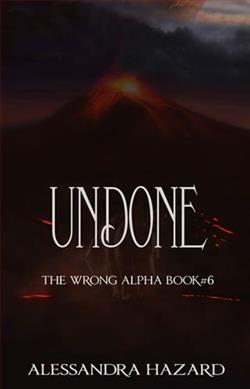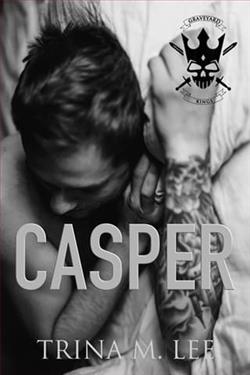Page 2 of The Witching Hours
When they’d bought nice cars on five-year loans and used credit cards to take the boys on expensive vacations, they had every reason to believe their cash flow would continue to thrive and outpace their obligations. When they’d spent a fortune on initiation dues to join an exclusive golf club, they’d considered it an investment. After all, Steve would have access to hundreds of people with thick portfolios of assets who didn’t mind over insuring. She’d said they should, maybe, pay off their student loans first, but he’d said the interest rate was so low it made more sense to spend money to make money.
He'd said it was their responsibility to make sure the boys were in the right place at the right time; that they needed to socialize with the sort of kids who would someday be valuable contacts. It was hard to argue with that. Like every loving parent, Brigid wanted the best they could give their sons.
Now, on a dreary Sunday morning with snow clouds hanging low on the horizon, the flowers had long since been deposited in the trash. The food and friends had stopped coming. Now, without any welcome distractions, she sat wondering how in heaven’s name it might be possible for a man who made his fortune selling insurance to overlook buying a life insurance policy for himself. A dozen times a week he’d preached the consequences of an unexpected fatality to prospective clients, especially where it concerned the untimely demise of the principal breadwinner. He must’ve somehow thought his streak of good luck included being personally impervious to the end that has claimed every other living soul since the beginning of time.
Brigid had been over her options a hundred times, each time hoping she’d come up with an idea that was brilliant and previously unsung. The solution remained disappointingly absent. Every option she thought of resulted in a riches-to-rags outcome. It wouldn’t be so awful if only she was affected, but the boys… They’d be facing the biggest change. There’d be a move to humble digs, possibly new schools. No more golf lessons. No more Disney cruises. No more bedrooms custom outfitted to look like the interior of the Millennium Falcon. No more extravagant Christmas mornings.
When the dust settled, they’d be dealing with the loss of their fatherandthe loss of life as they’d known it. When they were old enough to understand such things as life insurance policies, they’d ask questions. They might develop hard feelings toward their dad and, as angry as she was with Steve for being stupid, she didn’t want that.
They’d married soon after graduating from Connecticut U. She used her degree in journalism to land a job as receptionist atVanity Fairand hoped, or dreamed, that it might someday become an opportunity to write for her favorite magazine. Butan unplanned pregnancy demanded a change of plan. They’d talked about having a family someday. In another decade. Or maybe the one after that. Steve was upbeat about the news, unflappable as he always was, and said that fate had just made an adjustment to the timetable. He called it a blessing and made it feel true when he squeezed her in a big hug, lifted her off the ground, and turned in a spin until she giggled.
They bought a classic Cape Cod house painted dark gray with white trim just a half hour’s drive away from her sister. Brigid fell in love with the house and the nice size two-acre lot. Highly rated schools. Charming town within a ten-minute drive. It wasn’t a column atVanity Fair, but it was a dream worth living.
For the most part, she’d never regretted their choices. She knew the terms housewife and soccer mom were pejoratives in certain circles, but she’d fallen into the routines of raising a family naturally and felt comfortable with her role in the family. Of course, everything had hinged on Steve being a faithful husband and loving father who also provided funding for their lifestyle. The last box to tick, remaining healthy and alive, wasn’t something she’d taken seriously. Given the lack of life insurance, neither did he.
He’d been a loving husband and father. He’d also left her with three boys and a stack of bills that included student loans.
It’s always a mistake to believe things can’t get worse. Their income, residual commissions, had stopped. Dead. Just like Steve. She’d called the office to let them know the mailbox was empty, but was told there was no mistake. Her eyes had glazed over when the legal department began going over the fine print of employment.
The coffee cup she reached for was empty. After a glance at her watch, she decided it was too late for another cup. Besides,it was almost time to start dinner. She could resume shuffling bills around the next day.
Just then she heard the thunderous uproar of three boys trying to be the first one down the wood stairs. She switched off the desk lamp.
“Mom! What’s for dinner?”
The boys were not gripped by grief as one might expect. They knew their father was gone to heaven and not coming back. They were suitably sad at the funeral. But once the official rites were past, they pretty much resumed life as normal. She’d read somewhere that children are more traumatized by a change of residence than a change of personnel.
Her youngest was a little more sensitive than the other two, but so long as he was kept occupied, he’d weather the experience.
Brigid wanted to respond by saying something like, “Fresh minestrone soup made with organic, locally grown vegetables and all natural, cage free roasted chicken”. But when she opened her mouth what came out was, “Pizza and movies.” A cry of delight went up. Then she said, “It’s Kenny’s turn to pick.” That was met with two disgruntled brothers who were sure they didn’t want to watch anything baby brother might choose.
“Let’s negotiate.” As the oldest, Blake often took charge. He said this like he was forty and not twelve.
She laughed quietly while she considered how to respond. There were plenty of times when she thought the best parenting choice was brushing off and airing out the old standbys like, “Because I said so.” But she also believed there situations that called for creativity and forging new approaches. In this case, Brigid was a little impressed and a lot amused.
“Negotiate?” Even the youngest, Kenny, stopped and was paying attention, curious to see how this was going to go. “We have a tradition of taking turns on movie decisions. If you’resuggesting something different, I need to hear some sound reasoning why.”
Blake pulled himself up to his full height of five feet six, which happened to be Brigid’s height as well. She found that interacting with a child whose eye level was the same as hers was beyond odd. It required a major shift in perspective and a constant internal mantra reminding her that, just because he looked almost grown, didn’t mean he was almost grown. It was all the more shocking because the exaggerated growth seemed to have happened overnight. He’d needed new clothes three times in eight months.
“The three of us are not the same age,” Blake said.
“Hmmm,” Brigid responded. “I noticed that.”
“Yeah. So, we don’t like the same things.”
“You don’t like any of the same things?”
He rolled his eyes. “No. There’s some stuff we all like.”
“And?”
“It makes more sense to pick something we all like instead of making Judd and me watch some baby thing.”
That was all it took to spur Kenny to action. His face turned red at the same time he lunged and pushed his oldest brother with both hands. “I’m not a baby, moron cheese.”
Blake’s much bigger body wasn’t moved by Kenny’s all-out assault. Instead, he laughed and repeated what had just been said like it was ridicule. “Moron cheese?!?”
Judd was standing far enough away to be considered more onlooker than participant, but when he surrendered to laughter, he’d as much as picked a side. The oldest two had officially ganged up on Kenny.















